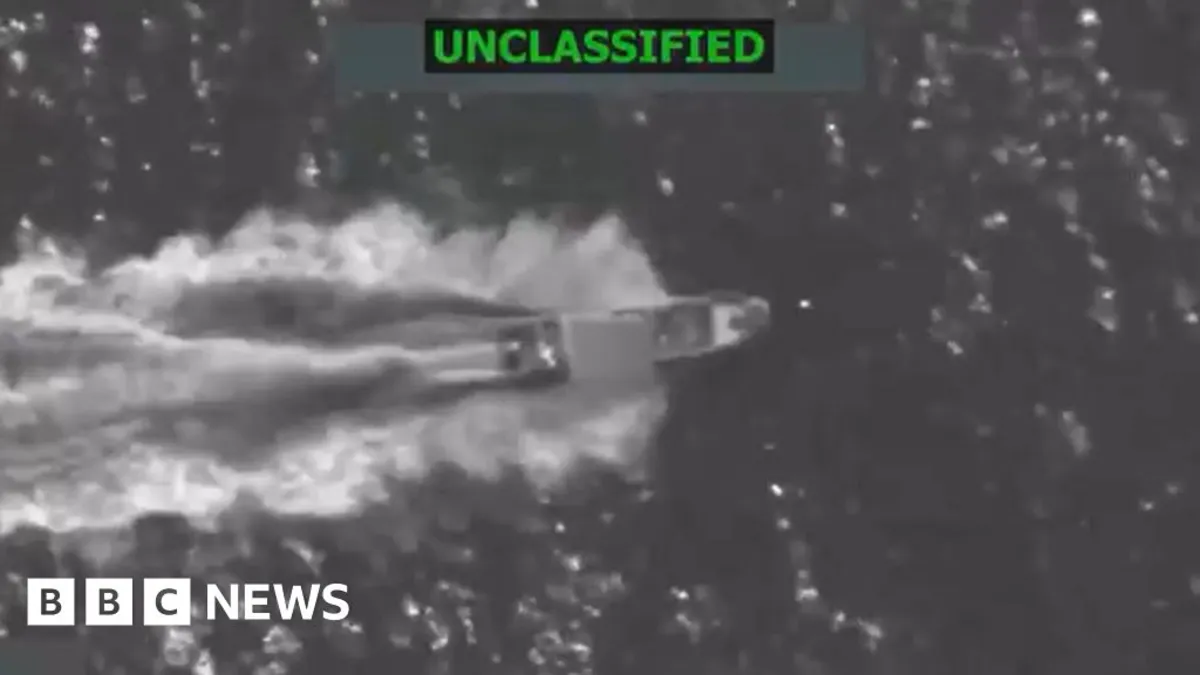
In a significant escalation of its anti-drug efforts, US forces have executed a second strike on a vessel suspected of transporting drugs in the Pacific Ocean. This operation aligns with the ongoing US campaign against seaborne drug smuggling, as reported by Defence Secretary Pete Hegseth. The strike, which occurred on Wednesday, resulted in the deaths of three individuals, with no casualties reported among US personnel.
This latest operation followed closely on the heels of another airstrike targeting a different boat in the Pacific, where two individuals were killed. Notably, these strikes mark the first offensive in the Pacific waters, contrasting with most previous actions that occurred in the Caribbean region.
According to Secretary Hegseth, the strikes were executed under the directives of President Trump, who emphasized that the Department of War carried out a lethal kinetic strike on a vessel affiliated with a Designated Terrorist Organisation. Hegseth stated, “These strikes will continue, day after day. These are not simply drug runners - these are narco-terrorists bringing death and destruction to our cities.”
The Colombian government has publicly condemned the US actions, characterizing the strikes on vessels near its coastline as akin to applying the death penalty in foreign territory. Deputy Foreign Minister Mauricio Jaramillo condemned the airstrikes as disproportionate and a violation of international law. During an interview with the BBC's Newsday programme, Jaramillo noted that the individuals aboard the vessels had no means to defend themselves and criticized the lack of judicial oversight in such operations.
Jaramillo urged for greater collaboration between the US and Colombia in addressing drug trafficking, rather than unilateral military actions that could escalate tensions.
President Trump has asserted that he possesses the legal authority to continue conducting strikes against vessels in international waters. He indicated that if the operations were to extend to land targets, he might seek Congressional approval. “We’re allowed to do that, and if we do it by land, we may go back to Congress,” Trump stated during a press briefing in the Oval Office.
Additionally, the President mentioned that his administration is “totally prepared” to escalate anti-drug operations onto land, which would signify a major shift in strategy.
To date, at least 37 individuals have reportedly lost their lives due to US strikes on alleged drug boats, including a recent attack on a semi-submersible vessel in the Caribbean. In this particular incident, two men survived the strike; one, identified as Andrés Fernando Tufiño from Ecuador, was released after Ecuador's government found no evidence of wrongdoing. The other survivor, a Colombian national, remains hospitalized.
The US's aggressive stance against drug trafficking raises numerous questions about international law and the implications of military involvement in anti-drug operations. As the situation continues to unfold, the global community watches closely, weighing the balance between national security and adherence to international norms.